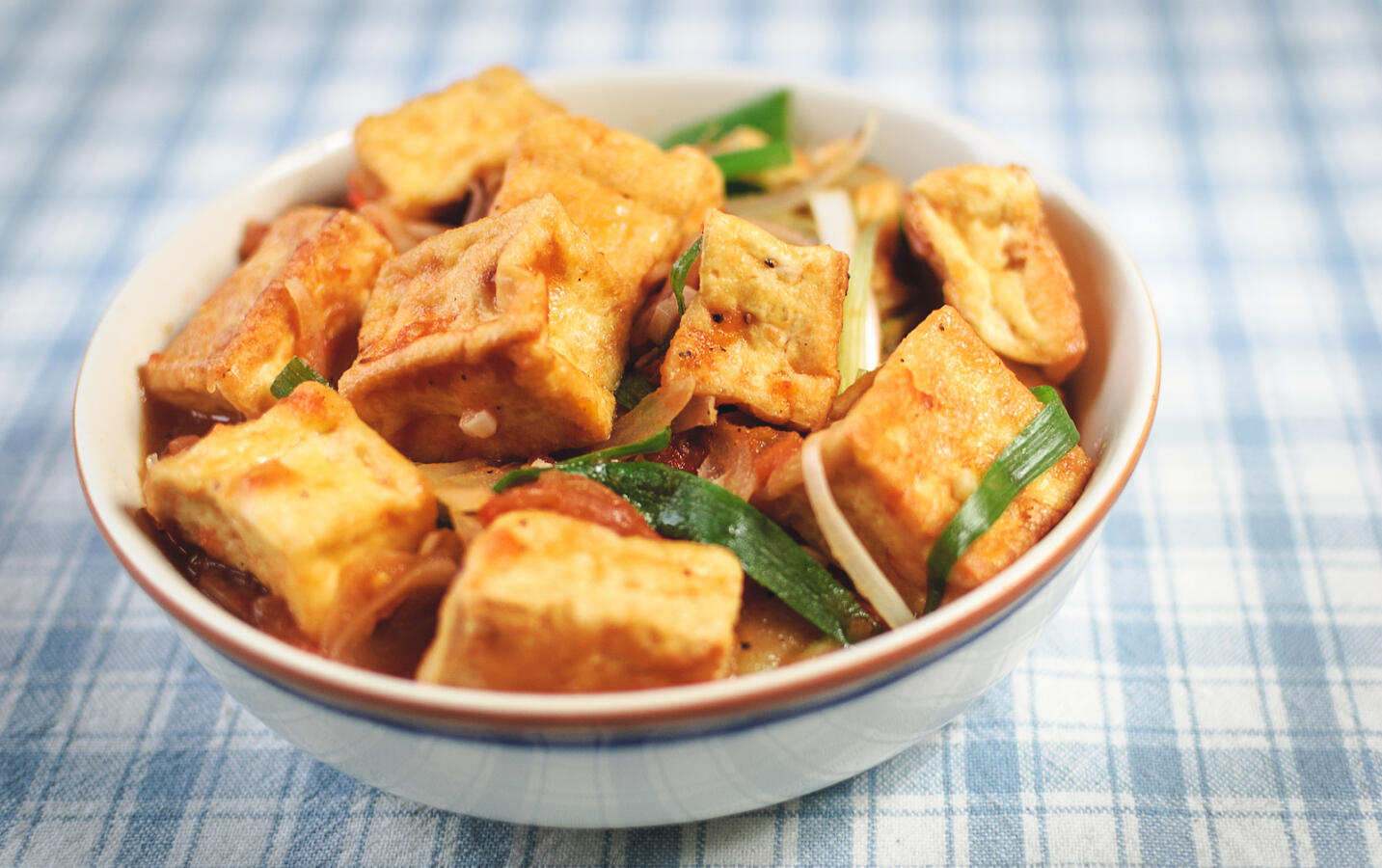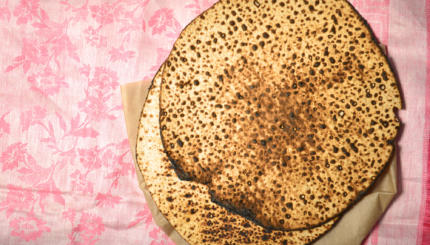Given the restrictions on eating hametz (leavened grains) on Passover, many Jews fall back on a meat-and-potatoes diet for the duration of the holiday. Barred from eating the products of five forbidden grains — wheat, spelt, oats, rye and barley — and with additional restrictions on grain-like foods (kitniyot) observed by many Ashkenazi Jews, Passover meals are often built around proteins, vegetables and matzah.
For those who don’t eat meat, this can be a serious challenge. Common meat substitutes — like tofu and tempeh — though not necessarily products of the forbidden grains, are all problematic on Passover. Seitan is made of wheat, and therefore outright forbidden. The others are made from beans, which generally fall into the category of kitniyot and are therefore avoided by Ashkenazim.
But what if you do eat kitniyot on Passover? Though historically avoided by Ashkenazi Jews, this restriction has softened somewhat since the Conservative movement ruled in 2015 that kitniyot are permissible on Passover. And Sephardic Jews have always eaten these foods. For kitniyot eaters, both tofu and tempeh are, in theory, permissible meat alternatives. However, it is close to impossible to find kosher for Passover varieties of either of these in grocery stores, which is an issue for those who only eat processed foods certified kosher for Passover on the holiday. Making them at home is technically possible, but that’s not a simple task either.
Passover-observant vegetarians therefore tend to rely on the following foods to stay nourished and full over the course of the holiday:
With your help, My Jewish Learning can provide endless opportunities for learning, connection and discovery.
Quinoa: This South American superfood has become the Passover vegetarian’s best friend in recent years. A complete protein — meaning it contains all nine essential amino acids that the body cannot produce on its own — quinoa is both a vital source of Passover-friendly protein and is filling much like a grain. It’s also versatile. It can be steamed like rice and eaten as a side dish, ground with water into a paste and fried like pancakes, or baked into casseroles and veggie burgers.
Avocado: Like all fruits and vegetables, avocados pose no problem from a Passover perspective. It’s also rich in nutrients. A typical avocado has about three grams of protein, along with a host of other nutritional assets, including healthy fats, vitamins and fiber.
Nuts and seeds: With the notable exception of peanuts, most varieties of nuts and many seeds are kosher for Passover, and in their raw form require no special certification. (For a more complete guide, click here.) Nuts are also packed with protein, fat and antioxidants.
Eggs: Eggs are not only a vital source of protein on Passover, but also have ritual significance. An egg is one of the six items placed on the seder plate, symbolizing both one of the Passover sacrifices offered in the ancient Temple and the cycle of life.
Dairy: Traditionally a favorite on Shavuot, milk, yogurt and cheese are all delicious foods that can add protein and fat to a vegetarian Passover meal.



